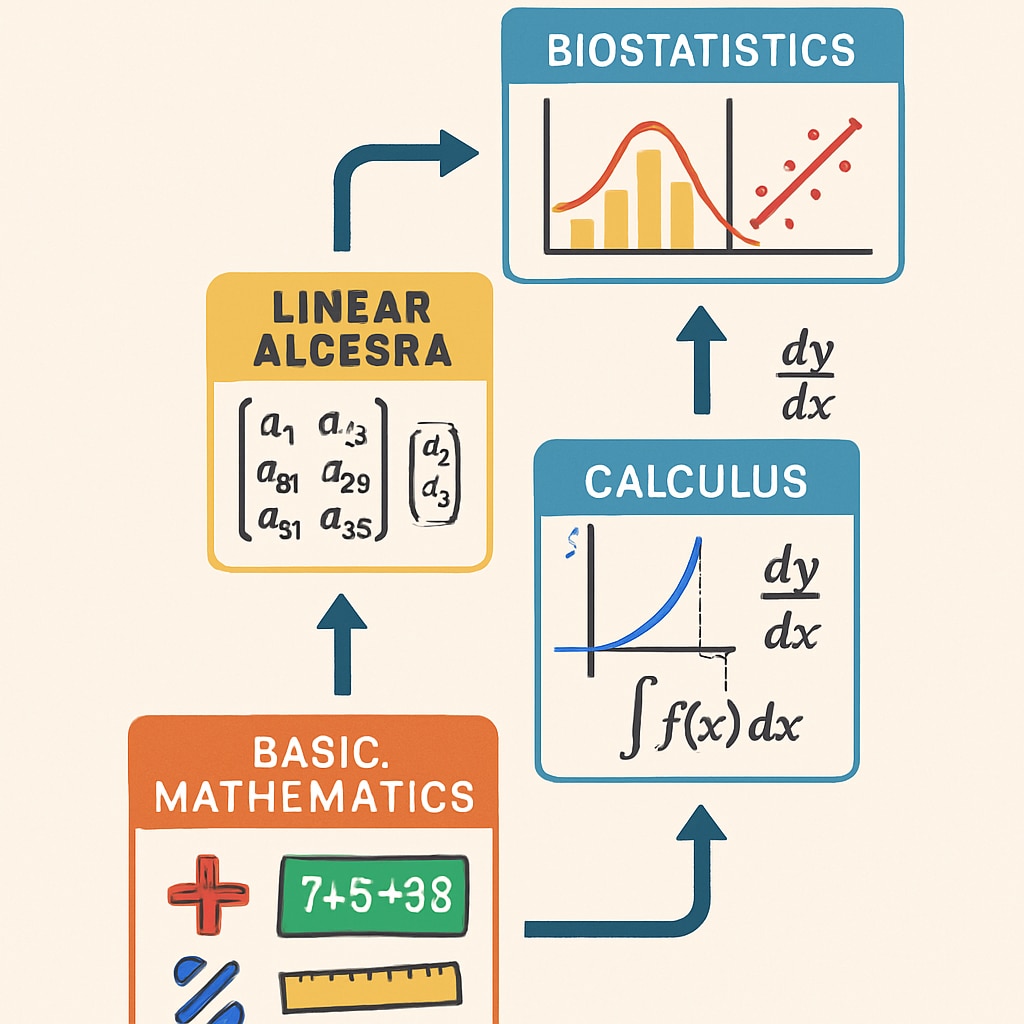When preparing for a biostatistics master’s program, selecting the right math courses (calculus and linear algebra) forms the critical foundation for success. Many students face dilemmas in prioritizing these subjects during their undergraduate or K12 preparation. This guide provides structured advice to make informed decisions based on three key factors: program requirements, personal aptitude, and long-term career objectives.
Core Mathematical Requirements for Biostatistics
Top biostatistics programs typically require competency in both calculus and linear algebra, but the emphasis varies. According to Wikipedia’s biostatistics entry, professionals need:
- Multivariable calculus for probability distributions
- Linear algebra for multivariate statistical methods
- Matrix operations for computational biology

Evaluating Personal Strengths and Learning Styles
While both subjects are essential, students often find one more intuitive than the other. The Encyclopedia Britannica notes that:
- Calculus learners succeed with strong visualization skills
- Algebra-focused students excel in abstract reasoning
- Hybrid approaches benefit from applied mathematics
Strategic Course Sequencing
For optimal preparation, consider this recommended sequence:
- Single-variable calculus (1 year)
- Linear algebra (1 semester)
- Multivariable calculus (1 semester)
- Applied matrix theory (elective)

Ultimately, the choice between calculus and linear algebra isn’t binary. Successful biostatisticians develop proficiency in both areas, using calculus for continuous data analysis and linear algebra for handling complex datasets. Early exposure to these mathematical disciplines through well-chosen courses creates a robust framework for graduate-level studies and research.


